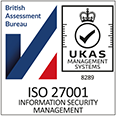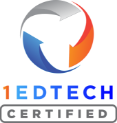Jesrine Clarke-Darrington, Learning Technologist from University of Sheffield on ‘Streamlining assessment process for assessors & students (OSCE).’ This recording is from our 2023 MiniBash community event which was hosted in Birmingham, England. Videos are for educational personnel only and require a live educational email to watch. You can read a small snippet of the video transcript below.
–START TRANSCRIPT–
Okay, so I’ve drawn the straw to go first. So, I’m Jesrine, and I work as a learning technologist at the University of Sheffield. So, I’m going to talk to you a little bit about how we’ve used PebblePad to sort of streamline our OSCE assessments, and I’ll explain what that is in a minute.
So I worked for the Health Sciences School, which is a newly formed school that formed in about 2019 and it’s made up of three divisions – nursing and midwifery, speech and language therapy and orthoptics and ophthalmology – and prior to that, we all worked separately, we had different systems. So, we were keen to sort of work together and sort of align our processes a little bit more.
But one of the things we had in common is that we all ran OSCE’s and for those of you that don’t know what an OSCE is, it stands for objective, structured clinical exam. And it’s a type of assessment that’s quite widely used in medical education and it basically allows students to practice or demonstrate clinical skills using like a standardised medical scenario and it often has multiple stations. So, the problem we had is pre COVID, we used paper-based assessment forms, and these tended to be time consuming, they were inefficient, they took a lot of admin support to get it all set up, and we wanted to sort of develop more sustainable practices that were less wasteful.
We also wanted to sort of improve the way we shared feedback with students, particularly formative feedback. Obviously with the paper ones that had to be scanned in before they could be shared with students, so there was often a delay in getting their feedback to the students.
So the other thing that we were keen to do is to ensure that students received immediate feedback for formative assessments. Particularly because of the type of assessment they were doing, we were keen to sort of ensure that they could improve their clinical practice safety and competence and also prepare for their summative assessment, so that was one of our sort of key goals there.
So the challenge we had is that we wanted to find a digital platform that would allow us to assess OSCE’s in real time, that would allow us to standardize our processes across the different divisions, allow that sort of transparency in sharing feedback to the students and obviously look at something that was a bit more efficient and sustainable.
So, I had a little play with assessor-initiated assessments before, but I’d never used it in practice as I never had time to do anything with it. So, we were hoping that that might be a solution. And what we did is we had a two-day digital retreat where we had academics and learning technologists, and it gave us that perfect opportunity to sort of explore it a little bit further, and that solution turned out to be PebblePad.
–END TRANSCRIPT–







